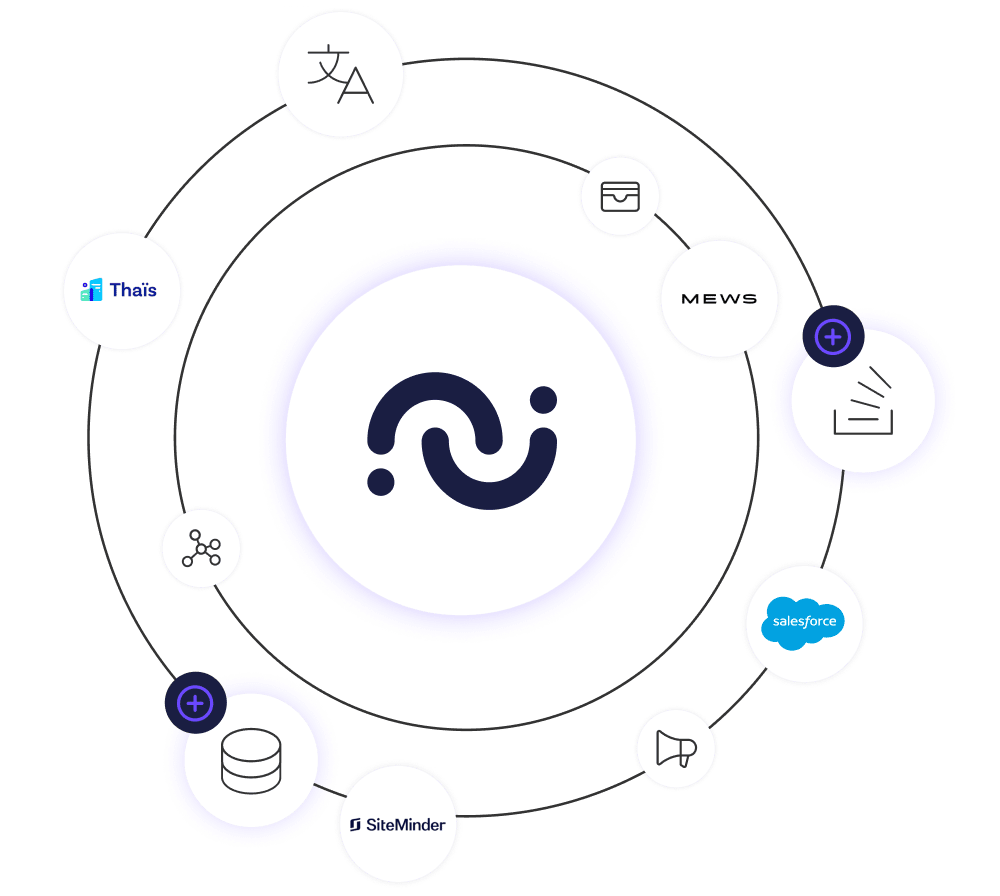You can now access Expedia Group messages in the HiJiffy Console 🚀
Connect your systems with HiJiffy’s conversational AI specialised in hospitality
Enjoy the benefits from the moment the integration is active

Let’s enhance your hotel management tools with conversational AI
An integration is linking together different hotel systems to interact without interruptions. In short, HiJiffy provides a solution for data and functionality to flow seamlessly between integrated systems, communicating optimally between them and thus streamlining and decreasing complexity.
HiJiffy partners with industry leaders to help customers provide services that solve their problems and address their pain points.
We currently have 60+ integrations with the following categories of hotel systems:
HiJiffy offers API integrations and custom integrations.
API stands for application programming interface and this type of chatbot integration allows HiJiffy’s solutions to communicate with other products and services without having to know how they’re implemented.
Custom integrations means building a custom solution that is specific to an exact use case. This can be done by sending a CSV file to us via email or FTP.
HiJiffy integrations are a cornerstone of digital transformation within the hospitality industry, and the main benefits are:
Without proper integration, agents need to manually enter data into multiple applications instead of adding value to the process. Our integration transfers data automatically between systems, resulting in smoother workflows, better process efficiency and reduced error margins.
Data stored in different systems result in data silos, and organisations are incapable of objective and proper analysis. HiJiffy gathers all data in a central system improving data insights, ensuring consistency, and increasing the value of the data.
Another advantage of centralised data in HiJiffy’s Guest Communications Hub is the ability to use real-time, accurate data across traditional organisational boundaries, providing a 360° view of a business. Better, more accurate decisions allow organisations to grow faster and lower operational costs.
Some organisations may depend on systems that are long past their end-of-life but may be irreplaceable. Integrating data from these legacy systems with HiJiffy into other newer systems allow hotels to continue working with legacy systems when moving forward in digital transformation.
Defining data flows is getting to a level deeper than “make Client X talk to Partner Y”. Many business stakeholders need some help getting from that top-level concept to a tangible specification that would allow someone to actually build that integration. Data flows provide that level of specification, but it still might be too in the tech weeds for some people.
So it’s helpful to start by defining use cases first, business cases. These should be expressed in a format that’s more comfortable for a business stakeholder because they are part of virtually any IT or software project.
The goal is still to get to a list of data flows, but starting by defining use cases allows business stakeholders to break down “make Client X talk to Partner Y” in business value terms, with little regard to technical realities.
E.g. Booking Cancellations: New Cancelled Guest (triggers when a guest cancels their reservation).
The scope for an integration is the summation of the scope of the data flows that must be implemented to achieve the desired business use cases.
E.g. Check Availability (check for hotel availability and show results on the conversation).